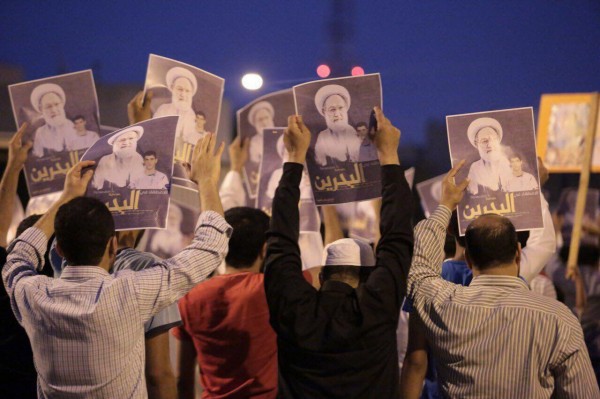Does Ayatollah Qassim Still Face a Threat after Suspension of Penalty?

2017-05-21 - 8:04 p
Bahrain Mirror: Bahraini Judge Ali al-Dhahrani today sentenced Ayatollah Shaikh Isa Ahmad Qassim, Hussein Al-Qassab and Mirza Al-Dirazi to one year in prison with a three-year suspension of the sentence, in the case involving the collection of the funds of the religious Shiite Khums (alms) obligation, which the Public Prosecution described as unlicensed fundraising.
So what does suspending the execution of a sentence mean according to Bahraini law? Is there no longer a risk of Sheikh Isa Qassim being targeted more vehemently. There are cases where the re-implementation of the penalty is possible, which include: If the convicted person does not fulfill his obligation to provide compensation, and the Public Prosecution is also likely to appeal the sentence against Ayatollah Qassim, which means there is a possibility the ruling could be toughened.
It is a long round that is not over yet. In fact, the most serious consequence of the ruling today is that the Khums is now deemed a criminal offense.
The Ministry of Interior published an article a several years ago in the local press in which it explained what the suspension of a sentence means.
The following is the translation of official text of the Interior Ministry published in the "Security Culture" column that was sent to newspapers. The column was published on February 21 , 2009:
The Bahraini legislator adopted the system of sentence suspension to avoid the disadvantages of implementing short-term deprivation of liberty penalties. The suspension of a sentence begins with a conviction, but in circumstances which the judge considers to be pursuant to the law, the suspension of the sentence is included in the issued ruling. In such a case, the suspension shall be bound to a condition during the period of probation determined by law.
This course of legislation comes in accordance with the principle of discretionary authority concerning criminal matters.
Article 81 of the Penal Code stipulates that when a judge sentences, over a crime, a fine or a period of imprisonment not exceeding one year, the judge may order the suspension of the execution of the sentence if the convicted person's morals, past, circumstances or age indicate that he will not return to committing a new crime.
Therefore, the mere threat of being subject to punishment is in fact an actual punishment, because if the convicted commits an act that renders him ineligible for a suspended sentence, the judiciary will lift the suspension. The cases in which the suspension of the sentence is lifted are as follows:
1- If the convicted person does not fulfill his obligation to provide compensation.
2-If an intentional offense was committed over which he was sentenced to a deprivation of liberty penalty for more than two months, whether the conviction was issued during this period or after it ended, provided that the case was opened during (the probation period).
3-If it was discovered, during the probation period, that a ruling has been previously issued, which the court was unaware of it.
Hence, suspending the execution of a sentence is an incentive for determining the right path for the convicted person. This incentive will prevent him from bad conduct for the sake of avoiding a serious punishment. It will urge the convicted to act properly in the hope of being rewarded, by being completely immune to the possibility of an executed sentence. This is a method that the social defense organization has praised for reducing the recurrence of crimes. By keeping the criminal outside prisons, he is being protected from the influence of factors that lead to a subsequent crime. Thus, if the probation period elapses without the surfacing of any reason for canceling the suspension, the sentence shall be deemed null and void.
- 2024-05-08Bahrain: One Step Forward, Two Steps Back
- 2024-05-06Ali Haji May Face Imprisonment Again on Charges of "Penetrating a Restricted Area"
- 2024-05-01Was the Resumption of Flights with Iraq Expected?
- 2024-04-20Recent Releases in Bahrain: Something Has Changed
- 2024-04-04Return of Repression to Bahrain's Streets with the Crown Prince and Prime Minister's Blessing